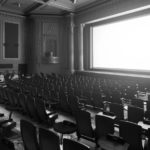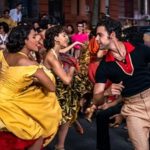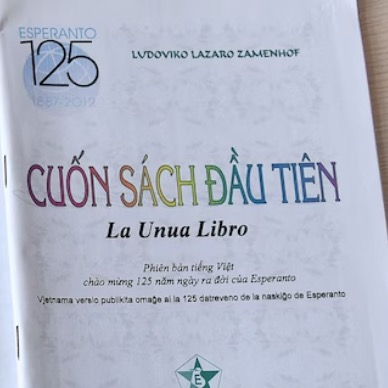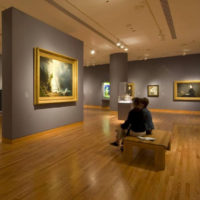Yearly Archives: 2021
Puzzling Over What To Make Of 2021 In The Movie Business
For Hollywood studios, 2021 was a year of great experimentation and the rare chance to relentlessly test movie distribution patterns in ways they had...
“The View” Is Having Trouble Finding A Conservative To Replace Meghan McCain
"They don't want another NeverTrump Republican who will chummily respond to the liberal hosts' musings with 'yes, but' qualifications (their focus groups suggest that...
Why Are NYC’s Public Monuments Crumbling From Neglect?
Dozens of monuments and artworks await repairs and conservation that may never be forthcoming because of rising maintenance costs and shifting priorities to newer...
David Wagoner, Leading Poet Of The Pacific Northwest, Dead At 96
"(He) turned a keen eye on nature, his childhood and numerous other subjects in more than 20 volumes published across half a century." -...
Proposed Oklahoma Law Would Punish (And Fire) Librarians If They Don’t Remove Books
Under Senate Bill 1142, if just one parent objects to a book it must be removed within 30 days. If it is not, the...
“Nutcracker” As Political Allegory
A foreign policy scholar suggests (with some evidence) that the Tchaikovsky/Petipa/Ivanov adaptation of E.T.A. Hoffmann's story was intended as a portrait of the calming...
“Don’t Look Up” Critics And Defenders Go To War
It shouldn’t have to be restated every time a lackluster movie is released that a critic’s job is to evaluate a film’s quality and...
Trying To Get More Women Into India’s Growing Standup Comedy Scene
That's as both audience members and performers. - Deutsche Welle
Are Critics Missing The Point Of “Don’t Look Up”?
This is not the film Idiocracy, depicting us all as dumb consumerist sheeple. This is a film with great faith in humanity, and cynicism only...
Authors And Publishers Win Almost $8 Million In Suit Against E-Book Pirates
"A federal judge has issued a default judgment against a major overseas e-book piracy operation known as the KISS Library after its operators failed...
Romance Novels About Nonwhite Characters Are Finally Breaking Through In The Marketplace
And the authors of those books — who, not long ago, couldn't get a single look from publishers — can thank social media: Booksgram,...
What Public Radio Stations Use Ratings For
Says one exec, "While we don't live or die by ratings, as at commercial stations, learning when and for how long people are listening...
Jeanine Tesori And The Art Of Musical Storytelling
Tony Kushner: "She either comprehends or intuits, not what necessarily is the most obvious choice for dramatic action, but what's under the surface, where...
The Art World’s Biggest Controversies Of 2021
"The public continued to interrogate museums over their treatment of workers, their attachments to patrons with problematic sources of wealth, and their dragon-like hold...
AI Robots Are Digitally Reconstructing Lost Works Of Great Art
It's happening with works by the likes of Klimt, Picasso, Rembrandt. Most controversially, if the only surviving photos of a lost work are in...
Censored Versions Of Books And Films Released In Spain Under Franco Are Still In...
The dictatorship's censors were all too thorough: scenes were even cut from It's a Wonderful Life — and the doctored version of that film...
Paris Revives a Cultural Icon – The Seine
Swimming has been officially banned since 1923. More than two-thirds of all French have a negative perception of the river. And yet when French officials unveiled...
We’re Overwhelmed By The Amount Of Culture Being Produced Today
It is impossible to overestimate the volume of stuff that is being produced, edited, and put online today. The content cup runneth over, and...
How Streaming Devalues Movies
You can sense it in all the calculations Disney has been making with regard to what goes to theaters, what’s PVOD, and what goes directly...
Second 1887 Time Capsule Found Under Robert E. Lee Statue
News accounts described its dozens of donated artifacts, including Confederate memorabilia. Based on historical records, some have also speculated the capsule might contain a...
“A Movie In Conversation With Its Own History”: How Spielberg And Kushner Retrofitted “West...
"Vulture's theater desk, Helen Shaw and Jackson McHenry, discuss the 2021 version, how it alters a hugely familiar piece of art, and how and...
Will Crutchfield: New Opera Is Thriving
New opera, by any reasonable definition – by any defensible amalgamation of the definitions commonly put forward over the years – is thriving. -...
Dostoevsky And The True Crime Craze In 1860s Russia
How the pulp nonfiction devoured by the public during Tsar Alexander II's reign led to Crime and Punishment — and how Dostoevsky used the...
The Best Books Of The Past 125 Years? The NYT Book Review Asked Readers…
In November, we presented a list of the 25 most-nominated books (one per author) for a vote. After tallying more than 200,000 ballots, the...
Good Things Happen When A Variety Of Black Viewpoints Can Be Seen On Broadway
"In the last few weeks, I've seen … Trouble in Mind, Caroline, or Change and Clyde's. Individually, their plots and period settings offer great...






























